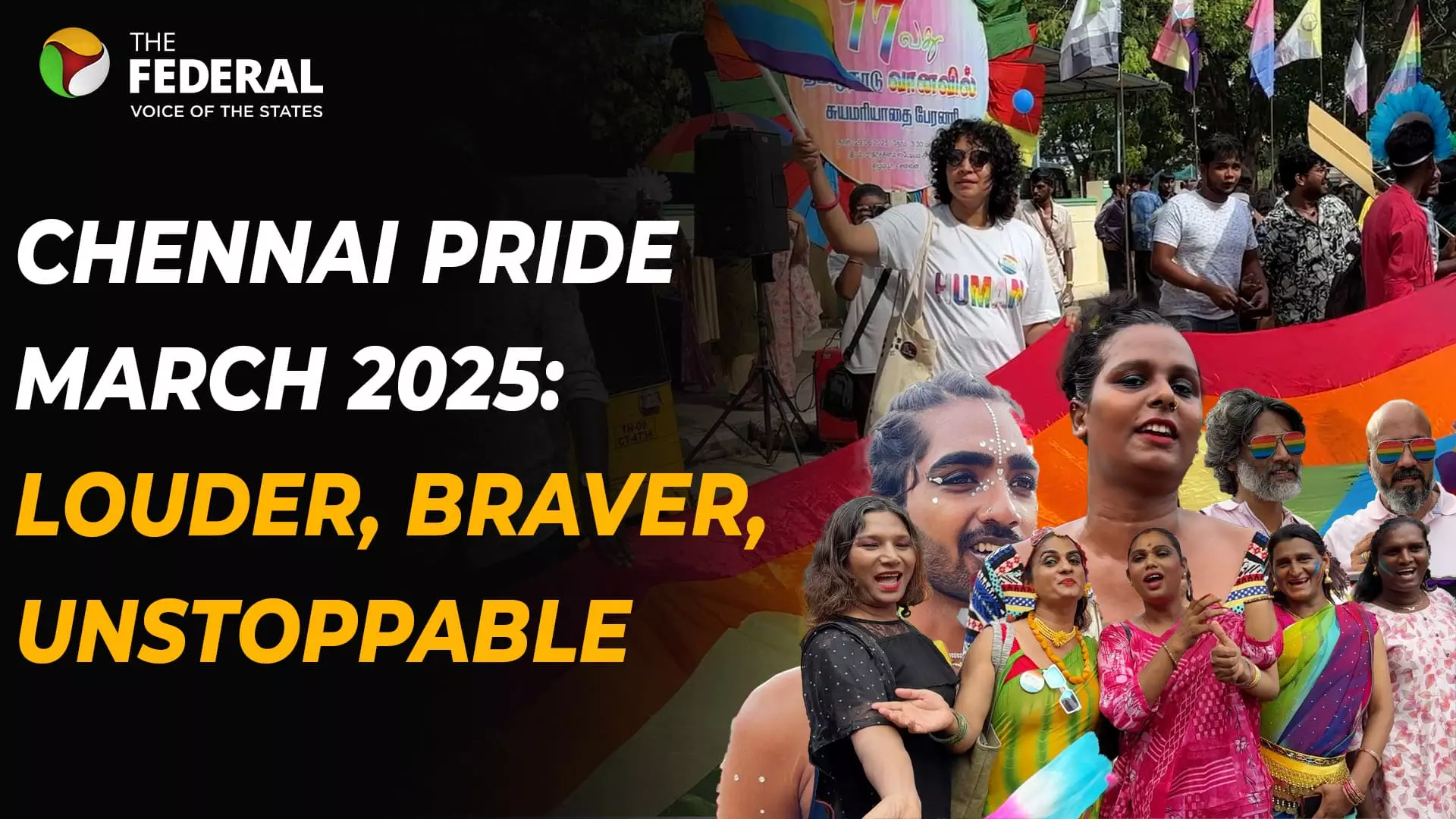
Chennai Pride March 2025: LGBTQIA+ voices demand rights, not just visibility
From personal stories to policy demands, Chennai's 17th Pride March became a loud, unapologetic call for dignity, inclusion, and legal recognition

A sea of rainbow flags swept through the streets of Chennai on Sunday (June 29) as the city hosted its 17th annual Rainbow Pride March. For the thousands who turned up, it was more than just a celebration — it was a rallying cry for visibility, legal recognition, and respect.
Also read: TN LGBTIQA+ policy stalled over call for separate scheme for trans, intersex persons
The Federal reports from ground zero, where the energy was electric but the message was unmistakably political: Pride is not just a party — it’s a protest.
Marchers held signs demanding marriage equality, stronger anti-discrimination laws, and better implementation of existing rights. The chants echoed through the streets: “We’re here, we’re queer, and we’re not going anywhere.”
Stories from the streets
For Venkat, who marched with his partner, the day marked his 67th Pride across India. “We just moved to Chennai. It’s beautiful to see the crowd grow and allies show up,” he said with pride.
Also read: How India can make educational institutions queer- and trans-inclusive
Atlas, donning a Dionysus costume, symbolised trans liberation. “I’m the patron god of trans kids today. Just being myself and being seen is so freeing. This means everything.”
Others reflected on the long journey of Chennai Pride. “We’ve been coming here for 15 years,” said Prys. “A young person told us, ‘I grew up watching you — your presence helped me come out.’ That’s why we keep marching.”
Beyond the rainbow
But the spirit of the day wasn’t just celebratory. Activists were clear: visibility isn’t enough.
“Pride is not just dancing or putting on rainbow colours. It’s about recognition and basic humanity,” said Devam. “We want to be seen for who we are, not for a performance.”
Venkat pointed out the policy gaps: “We still don’t have marriage rights. Without that, we’re denied healthcare decisions, inheritance, even housing. Pride is still protest.”
Atlas added, “Tamil Nadu is ahead of many states—but not enough. Pride must stay political if we want real change.”
Demands rooted in dignity
Many emphasised education as a key step forward. “Scholarships, free quotas, financial support — that’s what LGBTQIA+ students need,” said Rani. “Education changes lives.”
Marchers also warned against complacency. “Countries that were progressive are now going backwards. We can’t assume things will just keep improving. We have to keep fighting,” said one participant.
Rose touched upon India’s rich, inclusive past. “Before British colonialism, our gods and goddesses were gender-fluid, queer. We were erased—but we are reclaiming our space now.”
No going back
The Pride March also served as a response to growing backlash against queer communities globally. “There has been progress — marriage, adoption, workplace rights — but there’s pushback too,” Rose said. With emotion and defiance, she declared: “The genie is out of the bottle. We know our rights. We’re organised. And we won’t be pushed down anymore.”
How to be an ally
Marchers didn’t just speak to themselves; they spoke to those outside the community.
“Start by getting our pronouns right. Respect our identities,” said Atlas.
Rose added, “Homophobia and transphobia won’t survive. What you are seeing now? It’s just the last gasp of hate.”
Devam believes change begins with conversation: “No one is born homophobic. One real conversation can turn someone into an ally — or help them understand themselves better.”
(The content above has been generated using a fine-tuned AI model. To ensure accuracy, quality, and editorial integrity, we employ a Human-In-The-Loop (HITL) process. While AI assists in creating the initial draft, our experienced editorial team carefully reviews, edits, and refines the content before publication. At The Federal, we combine the efficiency of AI with the expertise of human editors to deliver reliable and insightful journalism.)

